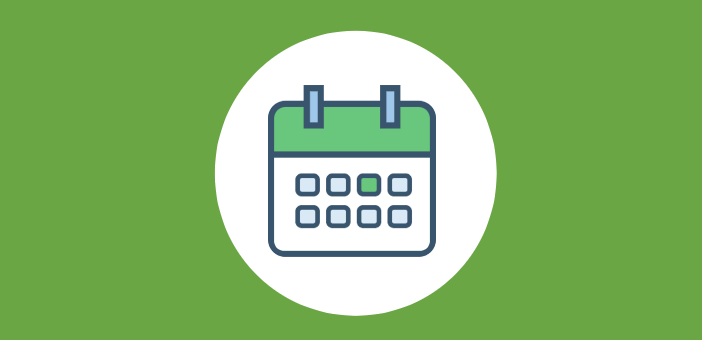When you switch from your 9-5 to full-time freelancer, you may have the impression that you’ll have so much more time to work and get things done – I know I did.
A few days or weeks in, the hard truth sets in when you realize that time will not suddenly become infinite now that you’ve started a flexible career as a freelancer.
Time is a very important asset that many of us often crave more of. When it comes to freelancing, time is everything because if you don’t have time to complete all your work, you don’t get paid.
This is why it’s best to actively defend your time as a freelancer from anything and everything that could throw you off track. Here are 4 tips and strategies to keep in mind if you feel like you never have enough time in the day and don’t want to be stuck working 24/7.
Table of Contents
ToggleGet on a Schedule
Sticking to a realistic schedule is key with freelancing because there’s no one there to tell you when to work. You need to decide what the best work hours for yourself will be and stick to them. 
If you prefer to work in the morning, you must commit to getting up early and focusing on your work. If you prefer to do the bulk of your work in the afternoon or evening or even try a split shift, you must stick to it for the most part.
I personally find split shifts great for freelancers who don’t want to work traditional work hours. I like to get up early and get a large chunk of my work done, then I may finish up a few tasks at night just to stay on track.
Use digital and offline tools to help you start organized.
Eliminate ALL Distractions
Find out what distracts you throughout the work day and get rid of it. For many people, it’s their phone or social media. Working online all day means that the temptation to log onto Facebook all day and the ability to waste time is always there.

I like to work without the television on and tend to put my phone in another room so the notifications don’t distract me and slow me down. I have a really bad habit of checking my phone constantly and if I were to add up all the time I used to spend “quickly” looking at or responding to every notification for the day, I probably could have gained back at least one solid hour (or more) of work time.
StayFocusd is a Google Chrome browser extension you can use to temporarily block social media and other sites that distract you when you are working.
You can also try closing the tab for your email messages while you’re trying to focus on something important so you aren’t tempted to constantly check your email.
If working from a different location will be less distracting, you can try working in other areas of your home, visiting the library or a coffee shop, or even trying out a coworking space.
Broadcast Your Work Hours
The next thing you want to do is literally broadcast your work hours. Let friends, family, and clients know exactly when you are working and preferably active on email or your phone. This is not to serve as an open invitation for people to contact you during work hours.
It’s more along the lines of setting boundaries and communicating when in the day people can expect you to be working.
I know that some of my family members used to expect me to be able to do certain things like run errands or do other favors during the week but as an attempt to defend my work time, I let them know what my work hours were in general.
That way, people didn’t expect anything from me around that time because they knew I’d be hard at work. To stay mentally and physically healthy, you may also want to set a few boundaries for your “off” time as well.
You can also put your general work hours in your email address signature so that if clients email you, they’ll know that you’re not going to respond to a message at 8 PM when it’s outside your work hours and you’re spending time with your family.
Broadcasting your work hours to those that need to know is a great way to set proper expectations with others and defend your time as a freelancer and even when you’re not working.
Say No to Phone Calls and Unnecessary Meetings
Phone calls with clients and other team members can be time-consuming and avoided if necessary. Sometimes it makes sense to jump on a call with a client to clear something up or discuss something.

For some purposes, it’s so much easier to say or show something (even if via video) and can actually save you time in the long run.
However, there are some instances when phone calls and video chats are just unnecessary. If you ever feel like you’re wasting your time with a phone call or video conference call pertaining to your freelance work, you probably are – especially if you’re not being compensated for it.
If something can be explained properly and much quicker via email, that should be your first solution. That way you don’t have to stop what you’re doing and hop on a call or even get dressed for a video call.
Email may be time consuming, but at least you can schedule in time to check it when it’s convenient for you.
If your client prefers to do regular phone or video calls, make sure you ask for compensation for your time spent in your contract.
Summary: Get Rid of Time Sucks
Common time sucks like distractions and unnecessary phone calls can really be a freelancer’s worst nightmare when they are trying to manage their time properly.
Bottom line, you must realize that unlike a traditional employee who gets paid regardless of if they take attend an hour-long meeting or spend too much time browsing on Facebook, you won’t get paid unless you complete your work.
On top of that, you’ll be responsible for unpaid tasks necessary to keep your business going like sending invoices, responding to emails, pitching clients and so on.
It’s important to defend your work day at all costs and prioritize your freelancing career. That way, you’ll be able to get more done in less time and won’t have to spend the entire day working or playing catch up.















